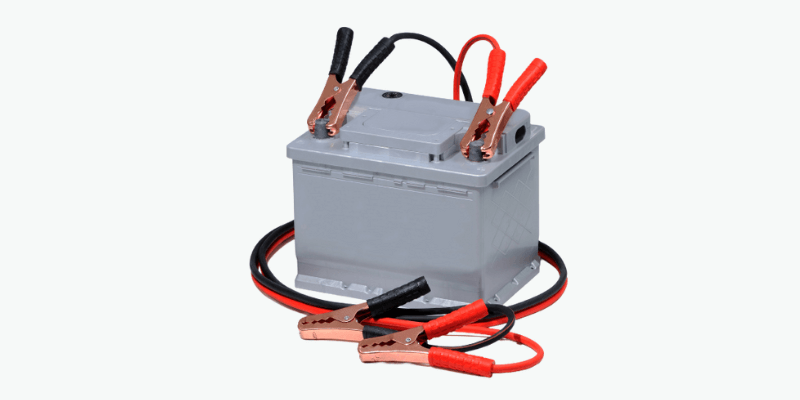Car batteries come in different sizes and shapes to fit various vehicles. Battery weight impacts performance and fuel efficiency in gas, hybrid, and electric vehicles. This blog will explore the weights of different car batteries, how to determine your battery’s weight, and more.
Why Car Battery Weight Matters
The weight of your car’s battery significantly affects its performance and driving experience.
Fuel Efficiency
- Heavier Battery: Increases fuel consumption due to added weight, forcing the engine to work harder and resulting in lower gas mileage.
- Lighter Battery: Improves fuel economy by reducing vehicle weight, allowing the engine to operate more efficiently and saving money at the pump.
Vehicle Performance
- Acceleration and Handling: A heavy battery hinders acceleration by requiring more power and makes handling less responsive in corners.
- Weight Distribution: Heavy batteries can disrupt balance, affecting stability and agility.
Longevity of Components
Increased stress on components such as suspension (faster wear), brakes (more force needed), and tires (increased wear).
Safety and Installation
Knowing the battery weight is crucial for safe handling during installation, as improper handling can lead to injuries. Ensure secure mounting to prevent movement that could damage the battery or surrounding components.

Weights of Different Car Batteries
Car battery weights vary by vehicle type and design.
Standard Car Batteries
Standard car batteries are typically lead-acid batteries. They weigh 30 to 50 pounds (13.6 to 22.7 kg) due to the lead plates and sulfuric acid.
Lightweight Car Batteries
Used in performance vehicles, these lithium-ion batteries weigh just 10 to 20 pounds (4.5 to 9 kg), enhancing acceleration despite higher costs.
Hybrid Car Batteries
Hybrids, which are heavier than standard batteries, use nickel-metal hydride or lithium-ion types weighing between 100 and 300 pounds (45 to 136 kg).
Electric Car Batteries
EVs rely on larger lithium-ion batteries, with weights varying significantly. For example, a Tesla Model S battery weighs around 1,200 pounds (544 kg), while the Chevrolet Bolt’s is about 960 pounds (435 kg).
Heavy-Duty Car Batteries
Found in trucks and large SUVs, these robust lead-acid batteries typically weigh between 50 and 70 pounds (22.7 to 31.8 kg), with some industrial versions being heavier depending on requirements.

How to Know Your Car Battery’s Weight
Knowing your car battery’s weight can provide insights into performance and assist in replacement decisions. Here’s how to determine it.
Check the Battery Label
To find your car battery’s weight, the easiest way is to check the battery label. Many manufacturers list the weight in pounds or kilograms.
Use the BCI Group Number
The Battery Council International (BCI) Group Number indicates a battery’s size, terminal configuration, and type. You can use this number to find the weight in charts or online databases provided by many manufacturers and retailers.
Consult the Owner’s Manual
Your vehicle’s manual specifies the recommended battery weight.
Contact the Manufacturer
If you can’t find the weight information, contact the battery manufacturer directly.

Are Heavier Batteries More Efficient?
Heavier batteries do not guarantee greater efficiency.
The Trade-off
Increased Range: Heavier batteries store more energy, resulting in longer driving ranges for electric vehicles. Increased Weight: The added weight increases the vehicle’s mass, requiring more energy to accelerate and maintain speed, which can offset the range benefit.
Key Factor: Energy Density
Energy density measures energy stored per unit of weight or volume, allowing for more storage without increasing battery size or weight. Higher energy density means more energy in a smaller, lighter package, resulting in better efficiency. Lithium-ion batteries used in EVs have a higher energy density than lead-acid batteries.
A heavier battery can be more efficient if it offers greater energy density, potentially extending range. However, increased weight also raises energy consumption for the same distance, making balance essential.
Conclusion
Understanding car battery weight is essential for informed vehicle decisions. Factors such as battery type and materials affect weight, performance, and efficiency. By considering these aspects, you can select a battery that balances weight, performance, and cost for optimal vehicle operation.

